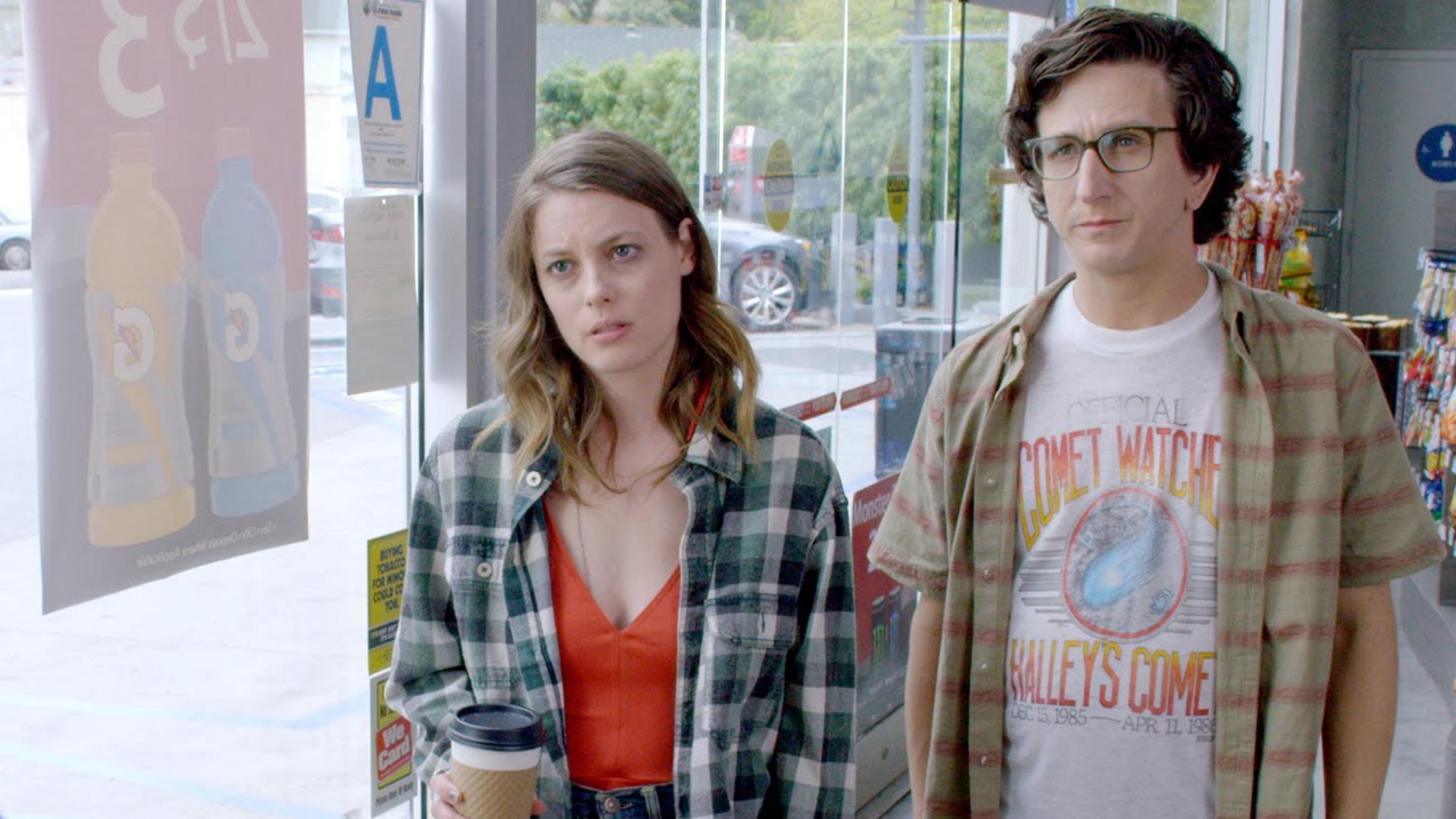Chances are, you’ve seen at least one of Judd Apatow’s films. And whether it’s Knocked Up, The 40 Year Old Virgin, Funny People, or Trainwreck (there’s also This Is 40, but we don’t need to count that), you surely have a basic understanding that this guy creates hilarious dramas with an abundance of genuine feeling. He never shies away from the uglier, more terrifyingly real aspects of life, and I’m happy to say that he really doesn’t do that in his new Netflix rom-com with the deceivingly generic title of Love.
https://www.youtube.com/watch?v=Ym3LoSj9Xj8
Gillian Jacobs plays sort-of alcoholic and drug addict Mickey. You could say this girl is just unlucky in love, but she actually has a slew of nasty personal habits that boldly stand in the way of her meeting The One. Of course, those habits—which lead her to her local convenience store in a bathing suit without a wallet—are indirectly responsible for her meeting Gus (the appropriately lovable Paul Rust), a socially awkward nice guy who happens to be in the store after enduring a particularly unfair breakup. After he sweetly offers to buy Mickey’s coffee, she enlists his help retrieving her wallet, and the pair have a fantastic time getting high (on life and drugs) around Los Angeles’ Echo Park. Mickey may not know it yet and neither might Gus, but he’s courting this beautiful, positively unhinged blonde bombshell.
If polar opposites exist, Gus and Mickey seemingly fulfill those roles. Gus is a shaggy-haired, bespectacled on-set teacher to the overworked Aria (played perfectly by Apatow’s daughter Iris), who stars on a TV series called Wichita—which Gus harbors dreams of writing scripts for. In his spare time he’s a full-on adult nerd, getting together with his friends to create theme songs for movies that don’t already have one. Mickey is outspoken, hot headed, and free spirited, and she works for a radio host who gives love advice (and who himself comes off as a bit hot-headed). Her most admirable quality is that she says what she’s thinking and feeling, and her frequent bursts of confrontation are what endear us to her character from the get-go.
Love is unique in that it continuously gives the message that displaying the entirety of oneself isn’t something to be afraid of—it’s actually quite OK.
Needless to say, Gus and Mickey are a dynamic duo who emit an on-screen chemistry that is palpable from their first meeting and continues to be intriguing from both sides, particularly for Mickey, who really isn’t sure what to make of Gus’ fumbling politeness at first. As the series moves along, their impending love is slow burning—because romance is avoided at all costs. Mickey sets up Gus with her upbeat Aussie roommate Bertie (played charmingly by Claudia O’Doherty) because she believes that two “nice people” might enjoy a nice relationship and live happily ever after. Their traditional restaurant date is almost as memorable as Gus and Mickey’s eventual date at the mysterious Magic Castle, where Mickey doesn’t quite bite her tongue in time to save face. Both scenes are sharply written, offering generous sprinklings of character revelations throughout that, although bordering on outrageous, ultimately come off as experiences that you or I could have any day. That’s the genius of Apatow and the whole creative team behind Love (which includes Rust and Lesley Arfin): everything is relatable, so as an audience we never feel alienated, only a step closer to the conflict.
If at first Gus and Mickey seem ill-matched, by the end of the season they’re actually more alike than one would have anticipated. Relentlessly polite and humble on the outside, Gus is, like Mickey, prone to explosions of passion and outrage. Although the consequences might be detrimental for his character and his professional reputation, Love is unique in that it continuously gives the message that displaying the entirety of oneself isn’t something to be afraid of—it’s actually quite OK. Sometimes to enjoy life you have to live a little dangerously, and I don’t think we’re talking about jumping out of an airplane, but rather embracing everyday personal truths that can feel impossible to harness without a partner.
Love’s delightfully flawed characters consistently demand some understanding and empathy, but they never ask for anything that’s unreasonable. The love in Love doesn’t come easy, but then again, the best things never do. FL







